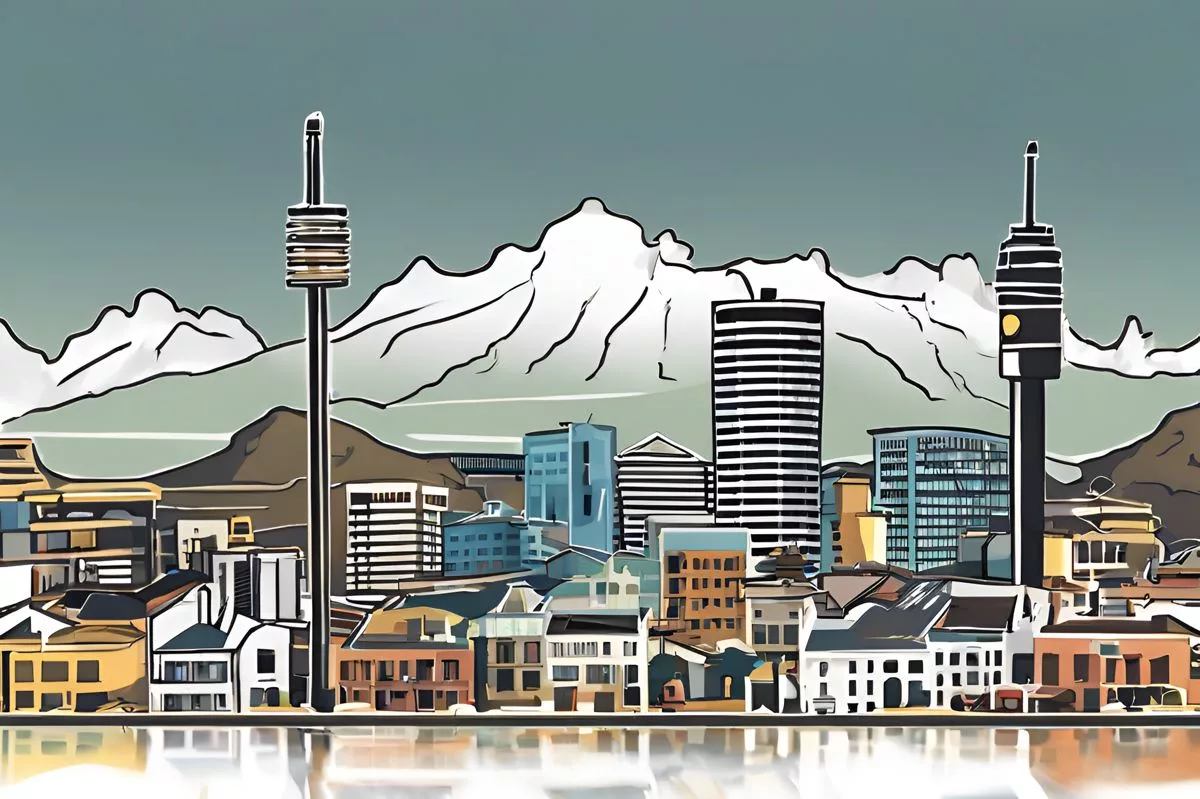Cape Town has made an unwavering commitment to infrastructure development and has invested over R863.6 million in 2023/24 to replace water and sewer pipes. The city has already replaced 35,000 metres of piping and plans to replace even more in the future. This dedication serves as a model for other cities, showing the importance of sustainability and improving the quality of life for residents. The city’s efforts showcase how infrastructural development and preservation form the backbone of building a sustainable urban habitat.
What is Cape Town’s commitment to infrastructure development?
Cape Town is committed to maintaining and improving its infrastructure, investing over R863.6 million in 2023/24 for water and sewer pipe replacement projects. The city has already replaced 35,000 metres of piping and plans to replace even more in the future. Cape Town’s dedication to infrastructure serves as a model for other cities, showing the importance of sustainability and improving quality of life for residents.
Infrastructure Development: An Ambitious Undertaking
Cape Town, a thriving city nestled between the Atlantic Ocean and the majestic Table Mountain, has proven its steadfast dedication to the maintenance and improvement of its infrastructure. From April to May 2024, the city’s Water and Sanitation Directorate initiated a challenging operation to replace a remarkable 35,000 metres of piping throughout the expansive city. The project was large-scale, as it was driven with a goal to exceed previous benchmarks of replacing 50,000 metres of water pipes and 100,000 metres of sewer pipes.
This formidable task was backed by an impressive investment of R863.6 million for the 2023/24 financial year. The municipality exhibits absolutely no intention of slowing down, eyeballing an investment exceeding R779 million for the remaining part of the year. Zahid Badroodien, the City’s Mayco member for water and sanitation, emphasized that proactive replacement of ageing pipelines would remain a high priority for the Water and Sanitation Directorate as the new financial year launches. They have earmarked R779 million for water and sewer pipe replacement projects citywide.
Achievements So Far: Encouraging Results
The city’s vigorous efforts in the months of April and May generated considerable results. The highest count of water pipes replaced was 627 metres in the visually appealing coastal town of Hout Bay. However, the benefits of this infrastructure enhancement were not limited to Hout Bay. Several other communities also reaped the advantages of this project, including the peaceful seaside suburb of Fish Hoek, the energetic residential area of Southfield, and the lively neighbourhood of Kuils River, among many others.
In May alone, the most extensive length of sewer pipes replaced was 2,870 metres at Morgenster, Brackenfell. This endeavour stretched across numerous areas including the peaceful suburb of Muizenberg, the high-end wine-making region of Constantia, the serene residential area of Bergvliet, the commercial centre of Tokai, and the bustling business zone of Stikland, to name a few.
Future Projects: Marching Towards Progress
Yet, Cape Town’s infrastructure development story is far from over. Prospective sewer replacement projects are anticipated in various locations such as Boston, Gugulethu, Bellville South, Wynberg, Plumstead, and Blackheath, among others. Water replacement projects are expected to follow in areas like Hout Bay, Retreat, Simonstown, Glencairn, Kommetjie, and Somerset West, to list just a few.
Cape Town’s persistent commitment to infrastructure maintenance and upgrade extends far beyond simply replacing old pipes. It stands as a testament to the city’s commitment to offering its residents high-quality, dependable services. It is about ensuring the durability of the city’s infrastructure, improving the quality of life of its citizens, and, ultimately, propelling the progress of this vibrant city.
Lessons For Other Cities: Setting A High Bar
The city’s efforts serve as a model for other metropolitan regions, showcasing how infrastructural development and preservation form the backbone of building a sustainable and thriving urban habitat. Cape Town’s ongoing commitment to infrastructure maintenance and upgrades is an exemplar of dedication and forward-thinking. It creates a roadmap for other cities to follow and underscore the importance of infrastructure in creating an environment that is not only functional but also improves the quality of life for its residents.
How much has Cape Town invested in infrastructure development for water and sewer pipe replacement projects?
Cape Town has invested over R863.6 million in 2023/24 for water and sewer pipe replacement projects, and plans to invest an additional R779 million for the rest of the year.
How much piping has Cape Town already replaced?
Cape Town has already replaced 35,000 metres of piping, and plans to replace even more in the future.
Which areas have benefited from Cape Town’s infrastructure development efforts?
Several communities including Hout Bay, Fish Hoek, Southfield, Kuils River, Morgenster, Muizenberg, Constantia, Bergvliet, Tokai, and Stikland, among many others, have already reaped the benefits of Cape Town’s infrastructure development.
What are the future projects for Cape Town’s infrastructure development?
Cape Town plans to replace old pipes in various locations, including Boston, Gugulethu, Bellville South, Wynberg, Plumstead, and Blackheath, among others. Water replacement projects are expected to follow in areas including Hout Bay, Retreat, Simonstown, Glencairn, Kommetjie, and Somerset West, among others.
What is the significance of Cape Town’s commitment to infrastructure development?
Cape Town’s ongoing commitment to infrastructure maintenance and upgrades serves as a model for other cities, showcasing how infrastructural development and preservation form the backbone of building a sustainable and thriving urban habitat. It creates a roadmap for other cities to follow and underscores the importance of infrastructure in creating an environment that is not only functional but also improves the quality of life for its residents.
What is the ultimate goal of Cape Town’s infrastructure development and maintenance efforts?
Cape Town’s persistent commitment to infrastructure maintenance and upgrades is not just about replacing old pipelines, but about ensuring the durability of the city’s infrastructure, improving the quality of life of its citizens, and ultimately propelling the progress of this vibrant city.











